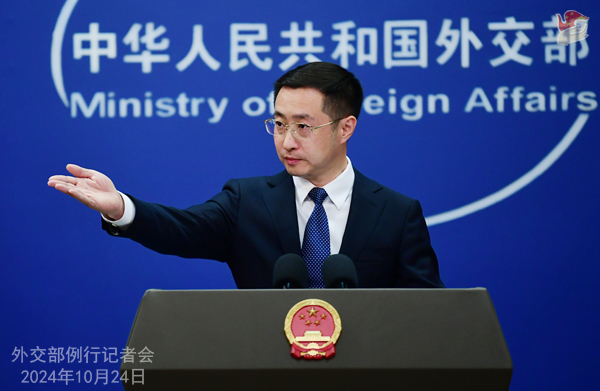“It’s too late to stop.” Why 75% of Russians still support war against Ukraine
By limiting the impact of sanctions and allowing people to focus on their personal lives, Russia has achieved an "alternate reality" that enables the war to drone on indefinitely. The post “It’s too late to stop.” Why 75% of Russians still support war against Ukraine appeared first on Euromaidan Press.

A recent in-depth poll from Russia’s independent pollster, the Levada Center, provides crucial insight into Russian public opinion on its ongoing war against Ukraine. The poll found that the vast majority of Russians have become apathetic about the war, resigning themselves to passive, conditional support for the government’s military operation. Their stance of “learned indifference” accepts Putin as a legitimate leader, so his chosen war strategy must also be legitimate. This apathetic majority feels little agency beyond waiting for this difficult period to pass as their stance grants Russia space to continue the war absent active public opposition.
The poll found 75 percent of Russians support Russian military’s actions in Ukraine. When responding to this question, survey participants frequently express sentiments like, “These are our boys, our warriors; how can we not support them?” The pivotal term here is “our,” a term also commonly employed by government officials, such as “our guys.” Often, they append qualifiers such as “war is bad, but we have to support our own” or “it’s regrettable that people are being killed, but there was no other way.” It is important to note that the phrase “there was no other way” is a familiar cliché used by the country’s leaders and in television coverage.

Half – 45 percent – expressed firm, uncompromising backing. The rest gave conditional support, often citing tropes like “we have to support our boys” and “there was no other way.” This group equates the war with defending Russia, not just attacking Ukraine.
A core 20 percent expressed aggressive, uncompromising war support. Many of these individuals fall within the retirement age bracket, predominantly men content with their current situation and exhibiting support for both the government and the military. Interestingly, levels of education and income do not appear to exert a significant influence on their responses. This same demographic also lends its support to partial mobilization.
71% of Russians feel “pride, joy, respect, hope” regarding war against Ukraine – poll
These are individuals who, given their age, are unlikely to serve in the military themselves and therefore do not face personal risks. They are comfortable advocating for the deployment of others to the front lines while expressing concern for “our boys” from a safe distance. Those holding this viewpoint often assert sentiments like “we shouldn’t stop halfway; we need to finish the job,” “if we stop now, we will lose this battle,” and “there is no way back.” Notably, in the latter part of the previous year, responses have begun to reveal a growing sense of bitterness. Their rationale: too much Russian blood has already been shed to stop now. Notably, men express greater support than women.
The Russian propaganda linking the war to defending Russia against alleged Western enemies has succeeded in consolidating public opinion. Most Russians view the war as a battle with NATO and the US over Ukraine, not with Ukraine itself. This perception of an existential threat precludes concessions. Only 20 percent consistently support negotiations, while just 25 percent approve concessions like returning Russia-occupied land to Ukraine.
Russians’ support for war against Ukraine stable at 76%; 17% oppose it
Nearly everyone endorsing the actions of Russian troops can articulate their stance. Prevailing sentiments of patriotism, such as “I support Russia” and “I stand with my country,” constitute the most prevalent motivations for support, accounting for 19 percent. Following closely are the three primary official objectives of the “special military operation”:
- safeguarding Russia’s defense (encompassing its territory and sovereignty),
- eradicating Ukrainian nationalists (including those associated with fascism and Nazism), and
- protecting Russian speakers in the Donbas region (described as brethren, fellow countrymen, and children).
Each of these three themes is referenced in 14 to 16 percent of responses. Notably, there is minimal disparity in the reasons cited between the groups expressing strong and weak support, with the former possibly displaying slightly greater indoctrination and a more frequent mention of the necessity to “combat Ukrainian Nazis.”

The one-fifth who oppose the war cite humanitarian concerns and casualties. They emphasize that “war is always bad” and assert their commitment to peace, with expressions like “for peace” and “against war” constituting the stance of 22 percent of respondents.
Notably, only around 13 percent of those taking an anti-war stance not only advocate for peace but are willing to attribute responsibility for the ongoing events to their own country. They express sentiments like “we started it,” “it’s not our land,” and “this is aggression.” “Anti-war group”, however, rarely protests, facing harsh crackdowns on dissent. After early anti-war demonstrations fizzled out, only 9 percent still openly share their opposition.

Only around 10 percent of respondents surveyed by the Levada Center found it challenging to articulate their stance on key issues such as supporting Russian troops, favoring peace talks versus the continuation of hostilities, and assessing the acceptability of various compromises. This is noteworthy because some researchers have artificially inflated this figure to as much as one-third of the population, categorizing them as opponents of war. Levada researchers caution against reaching such a conclusion adding that these respondents, based on their other answers, are not closely following current events. This very fact contributes to their difficulty in addressing substantive questions. Typically, individuals in this group are younger than their counterparts, with a higher representation of women among them.
Putin’s approval ratings experienced a notable increase weeks before and after the full-scale war. In the three months spanning from November 2021 to mid-February 2022, Putin’s approval rating rose by 8 percentage points, climbing from 63 percent to 71 percent. Following Russia’s invasion in late February through March 2022, there was another substantial surge of 12 percentage points, bringing the approval rating to 83 percent. This second surge closely mirrors the pattern observed in February–March 2014, when Putin’s approval rating escalated from 69 percent to 80 percent after the occupation of Crimea and the subsequent deterioration of Russia’s relations with the West.

The poll indicates most Russians have been able to separate state matters like the war from their personal lives. Broadly, Russians have resigned themselves to the war, choosing disengagement over confrontation with authorities.
Sanctions had little impact on living standards for many households. Buoyed by expanded social subsidies, wage and pension increases, incomes actually grew over 2022. That is, the impact of sanctions, initially expected to affect Westernized residents of major cities, proved limited for the majority of the population. A sustained trend toward more positive assessments of people’s situations emerged from summer 2022, influenced by increases in the minimum wage, pensions, and subsidies, as well as special payments for participants in the war. These substantial government payouts, coupled with salary increases in the public and military sectors, contributed to real income growth for many households and reinforced paternalist attitudes in Russian society.
The Russian government’s strategy involves greater economic control and maintaining the loyalty of core supporters through social payouts. The regime prioritizes public-sector employees, socially vulnerable groups, and military personnel and their families. While this strategy may reveal economic challenges in the long run, the government’s technocratic approach has, for now, effectively managed and stabilized unwelcome economic developments.

Despite awareness that the war against Ukraine is ongoing, most Russians focus on their personal lives, and the authorities, by avoiding announcements of further mobilization, sustain public calm. The announcement of mobilization in September did jolt the public, briefly increasing support for negotiations. But the shock soon dissipated as the limited, chaotic nature reduced personal risk. The majority feels the burden of fighting is being borne by professional soldiers and volunteers, not regular citizens.

Propaganda and financial assistance are employed to garner support. While potential shortcomings in the country’s economic model may emerge, the government’s technocratic bloc has demonstrated short-term adeptness in managing these challenges. The stability of the Russian economy remains questionable, and a shift in regime or policies could alter current public sentiments supporting the military operation.
So Russia has achieved an “alternate reality” that enables the war to drone on indefinitely, the survey concludes. The passive loyalty and resignation demonstrated in the poll still grants authorities room to continue the devastating assault on Ukraine. And with living standards stabilized and dissent crushed, there is little hope of internal pressure forcing an end to the war.
The cited polls involve face-to-face surveys with 1,600 participants.
Related:
- Poll: Most Finns believe Russians bear collective guilt for not resisting the war, back Ukraine’s NATO aspirations
- Poll: Support for Ukraine worldwide at “impressive” 70%
- Majority of Ukrainians reject giving Donbas and Crimea to Russia, say reconciliation impossible – poll
- Russians’ support for war against Ukraine stable at 76%
- Poll: 92% of Ukrainians see Holodomor as genocide
- Poll: Support for Ukraine worldwide at “impressive” 70%
- Poll: Overwhelming majority of Ukrainians oppose territorial concessions to Russia
- Most Ukrainians support Ukraine’s membership in NATO
- Poll results suggest where Russia and Ukraine are heading
The post “It’s too late to stop.” Why 75% of Russians still support war against Ukraine appeared first on Euromaidan Press.


